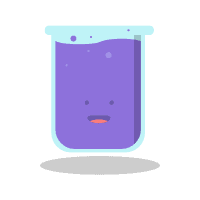
TEKS Grade 7 Science - 7.14.B Offspring from Sexual & Asexual Reproduction
Quiz by Texas Education Agency
Grade 7
Science (2017)
Texas Essential Knowledge and Skills (TEKS)
Feel free to use or edit a copy
includes Teacher and Student dashboards
Measures 1 skill from
Measures 1 skill from
Track each student's skills and progress in your Mastery dashboards
With a free account, teachers can
- edit the questions
- save a copy for later
- start a class game
- automatically assign follow-up activities based on students’ scores
- assign as homework
- share a link with colleagues
- print as a bubble sheet
3 questions
Show answers
- Q1Certain species of whiptail lizards have only female individuals and no males. These lizards reproduce asexually. What is one disadvantage of asexual reproduction for these lizards?A new population can be established by a single individual in a relatively short period of time.They are more likely to develop a variety of tail lengths.All the members of a population are genetically very similar and less able to survive environmental changes.They are smaller than lizards that reproduce sexually.60s7.14b
- Q2The hydra is a very small, simple animal that lives in water. Hydras reproduce asexually by budding, a process in which a bud breaks off an adult hydra and floats away. Which of the following best describes a hydra bud?A hydra bud contains genetic material from its two parents.A hydra bud has half as much genetic material as the parent hydra.A hydra bud has different mutations than the parent hydra.A hydra bud is genetically identical to the parent hydra.60s7.14b
- Q3A group of students prepared a table listing the types of reproduction that occur in several organisms. Based on this information, which of the organisms can produce offspring that are genetically identical to the parent organism?Cats, hydras, frogs, and ferns onlyAmoebas and yeasts onlyFerns onlyAmoebas, yeasts, hydras, and ferns only60s7.14b